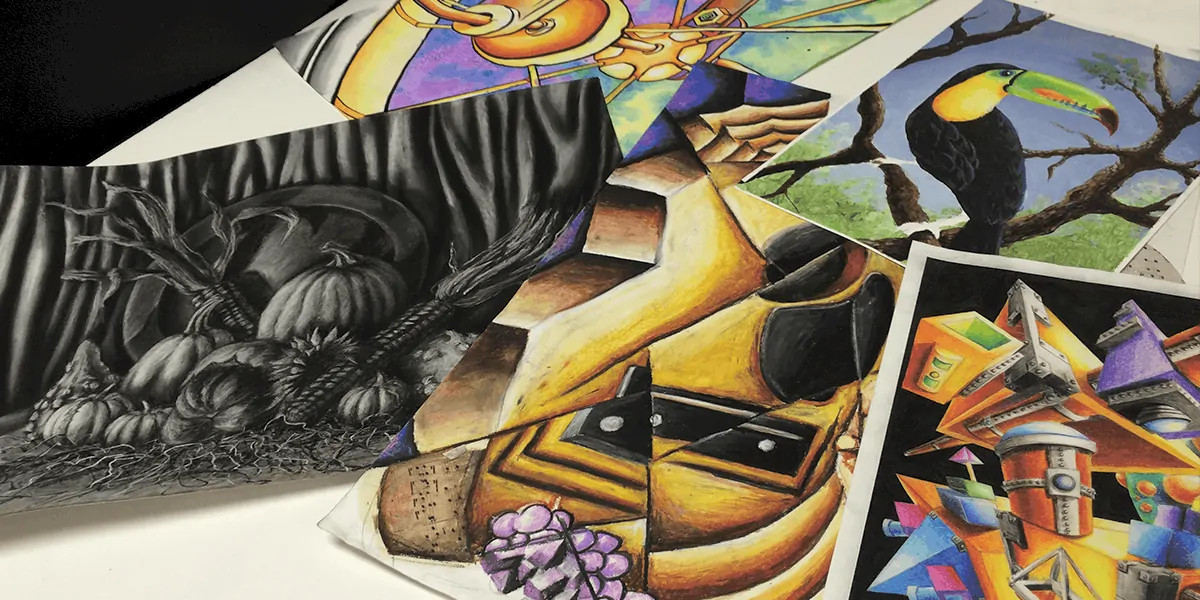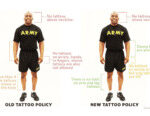The tattoo industry is vibrant and continuously expanding, evidenced by its impressive $1.6 billion annual revenue in 2018. This growth presents a compelling pathway for individuals passionate about art and seeking a fulfilling career. The average tattoo artist earns a respectable $49,520 annually, and highly sought-after artists can command rates as high as $500 per hour, truly living the dream of turning passion into profession.
If you’re aspiring to join the ranks of professional tattoo artists, understanding the available routes is crucial. There are primarily three paths to becoming a tattoo artist: securing an apprenticeship, becoming self-taught, or enrolling in a state-licensed tattoo school offering comprehensive Tattoo Classes.
The pivotal question then becomes: Which path is the right one for you?
Historically, aspiring tattoo artists had limited options. The traditional route involved a tattoo apprenticeship, often a lengthy two-year commitment under an established artist. These apprenticeships, while valuable, were scarce and demanded significant time investment. Alternatively, individuals could attempt to learn the craft independently, a challenging journey of self-discovery and potential pitfalls.
Quality tattoo apprenticeships were indeed hard to come by. Finding a skilled mentor willing to invest time in training was often a matter of patience and persistence. However, the undeniable truth is that apprenticeships are time-intensive. In today’s fast-paced world, time equates to opportunity and, for many, represents our most valuable asset. The desire to embark on a professional tattooing career swiftly is a common and understandable aspiration.
The self-taught approach, while seemingly autonomous, presents its own set of hurdles. It’s a protracted process characterized by trial and error. The solitary nature of self-study demands exceptional self-motivation, a trait not universally possessed. Experience within the art community often highlights the immense learning derived from collaborative environments, such as industry conferences and interactions with leading artists. These settings foster knowledge exchange and accelerate skill development far beyond isolated practice.
Operating a tattoo machine, while seemingly straightforward in skilled hands, is far from intuitive for beginners. Mastering the nuances requires dedicated instruction and practice. For instance, comprehensive tattoo classes often dedicate substantial time, such as 200 hours at institutions like Florida Tattoo Academy, solely to machine operation and control. Therefore, while the self-study route may appear cost-free initially, it often lacks the structured guidance necessary for efficient and safe skill acquisition.
This very gap in accessible, efficient tattoo education is what led to the emergence of tattoo academies and structured tattoo classes. These programs, like the 12-week program at Florida Tattoo Academy, are designed to equip individuals with artistic aptitude with the complete skillset needed to translate their artistry onto skin. Furthermore, such classes are increasingly inclusive, catering to those interested in specialized fields like medical tattooing.
The primary aim of reputable tattoo classes is to cultivate exceptional tattoo artists by providing a structured, comprehensive, and accelerated learning experience.
Before delving into the specific requirements and benefits of tattoo classes, consider reaching out to academies directly. If you have any questions about tattooing, the advantages of tattoo classes, or how to become a tattoo artist, institutions like Florida Tattoo Academy are often readily available to offer guidance and support. They share a passion for the industry and are dedicated to nurturing the next generation of talented artists.
What to Expect from Tattoo Classes: Building the Foundation of a Successful Tattoo Artist
Many aspiring artists possess inherent artistic talent, but transforming that talent into a successful tattooing career requires a comprehensive skillset beyond just drawing. Tattoo classes are structured to bridge this gap, providing essential training in numerous critical areas.
1. Honing Your Artistry: The Cornerstone of Tattooing
While tattoo classes typically assume a foundational artistic ability, they often incorporate elements to refine and adapt your drawing skills specifically for tattooing. Reputable programs may include portfolio reviews or basic art assessments to ensure students possess the necessary aptitude to succeed in the program. The focus shifts from general art to the specific demands of tattoo design and application on skin.
 student tattoo practice
student tattoo practice
2. Tattoo Machine Mastery: Precision and Control
A tattoo machine is more than just a tool; it’s the artist’s instrument. Tattoo classes provide extensive hands-on training in machine operation, far beyond a superficial understanding. Expect to dedicate significant time to practicing on diverse mediums like pig skin and synthetic skin. This rigorous practice builds muscle memory and refines technique before students progress to working on human skin. The goal is to achieve seamless control and precision, making the machine an extension of your artistic intent, akin to a paintbrush in the hands of a master painter.
3. Machine Maintenance and Customization: Ensuring Optimal Performance
A deep understanding of your equipment is paramount in tattooing. Tattoo classes delve into the mechanics of tattoo machines, teaching students how to assemble, maintain, and troubleshoot their devices. Imagine being able to assemble your machine blindfolded – this level of familiarity is crucial. Classes also cover machine selection, guiding artists to choose the right tools for different tattoo styles and individual preferences. Properly maintained and customized equipment is essential for consistent, high-quality tattoo work and prevents technical issues during client sessions.
4. Mastering Diverse Tattoo Techniques: Expanding Your Artistic Repertoire
Clients seek a wide array of tattoo styles, from classic tribal bands to intricate lettering and contemporary designs. Comprehensive tattoo classes expose students to a spectrum of techniques, equipping them to confidently execute diverse client requests. Experienced instructors, often with extensive portfolios themselves, impart valuable insights and shortcuts honed over years of practice. This broad technical foundation is crucial for artists starting their careers, enabling them to cater to a wider clientele and build a solid reputation. While specialization may come later, a strong general skillset is vital for initial success.
5. Building a Professional Tattoo Portfolio: Showcasing Your Skills
A compelling portfolio is your calling card in the tattoo industry. Tattoo classes often incorporate portfolio development as a core component. Many programs provide opportunities to create tattoos under supervision, generating portfolio-worthy pieces in a supportive learning environment. Furthermore, some academies, like Florida Tattoo Academy, have established client bases who are open to receiving tattoos from students under instructor guidance, recognizing the academy’s commitment to quality training. This supervised experience on human skin accelerates skill development and portfolio growth significantly, shortening the journey from novice to employable artist.
6. Client Interaction and Salesmanship: Beyond the Art
Success as a tattoo artist extends beyond technical skill; client interaction and salesmanship are equally vital. Some tattoo classes incorporate elements of customer service and sales training, recognizing the importance of building rapport and effectively communicating with clients. In a typical tattoo shop setting, artists are often given leads on a rotational basis. The ability to connect with clients, understand their vision, and articulate your ability to bring their tattoo ideas to life is crucial for securing bookings and building a thriving practice.
7. Bloodborne Pathogen Training and Safety: Prioritizing Client Well-being
Safety and hygiene are non-negotiable in tattooing. Reputable tattoo classes include mandatory bloodborne pathogen training, ensuring artists understand and adhere to strict sterilization and sanitation protocols. This training is often a licensing requirement and covers crucial aspects of infection prevention and maintaining a sterile working environment, safeguarding both artist and client health.
8. Job Placement Assistance and Networking: Launching Your Career
Entering the professional tattoo world can be challenging, particularly for self-taught artists. Tattoo shops prioritize protecting their brand reputation and are often hesitant to hire artists lacking formal training or verifiable experience. Recognizing this hurdle, some tattoo classes offer career services, including portfolio showcasing to local shops and networking opportunities within the industry. Some academies may even provide certification or licensing pathways that streamline the entry into professional practice.
Frequently Asked Questions About Tattoo Classes
What are Tattoo Classes?
Tattoo classes are structured educational programs designed to teach aspiring artists the skills, knowledge, and safety practices necessary to become professional tattoo artists. They offer a comprehensive alternative to traditional apprenticeships or self-teaching.
Why Choose Tattoo Classes Over Other Paths?
Tattoo classes offer a structured, accelerated, and comprehensive learning experience. They provide hands-on training, expert instruction, safety certification, and often career support, making the path to professional tattooing more efficient and accessible.
What Will I Learn in Tattoo Classes?
Curricula vary, but generally, tattoo classes cover essential art skills for tattooing, tattoo machine operation and maintenance, diverse tattoo techniques, client interaction, portfolio development, and crucial safety and sanitation practices, including bloodborne pathogen training.
Are Tattoo Classes Expensive?
The cost of tattoo classes varies depending on the program’s length, comprehensiveness, and location. However, consider tattoo classes as an investment in your career. The structured learning and accelerated skill development can lead to quicker entry into the profession and earning potential compared to longer, less structured paths.
How Long are Tattoo Classes?
Program lengths vary, ranging from a few weeks to several months. Intensive programs aim to provide comprehensive training in a shorter timeframe, while others may offer more extended learning experiences. Choose a program length that aligns with your learning style and career goals.
Will Tattoo Classes Guarantee Me a Job?
While no program can guarantee employment, reputable tattoo classes significantly enhance your job prospects. They provide the skills, portfolio, and often networking opportunities that make graduates more attractive to tattoo shops compared to artists lacking formal training.
Do Tattoo Classes Help with Licensing?
Yes, many state-licensed tattoo schools offer programs that meet or exceed licensing requirements. Bloodborne pathogen training, a common component of tattoo classes, is often mandatory for licensing. Some academies may even facilitate the licensing process for their graduates.
What Should I Look for in Tattoo Classes?
When choosing tattoo classes, consider accreditation or licensing status, the experience and credentials of instructors, the comprehensiveness of the curriculum, hands-on training opportunities, portfolio development support, safety training, and career services offered.
The Value of Structured Tattoo Education
Choosing the right path to becoming a tattoo artist is a significant decision. While apprenticeships and self-study have their places, structured tattoo classes offer a compelling and increasingly popular route. These programs provide a focused, efficient, and safe learning environment, equipping aspiring artists with the comprehensive skillset and industry knowledge needed to launch successful careers.
For those seeking a structured, accelerated, and supported path into the tattoo industry, exploring reputable tattoo classes is a highly recommended first step. These classes represent a valuable investment in your artistic future, paving the way to turn your passion for tattooing into a rewarding profession.
To learn more about how structured tattoo classes can kickstart your career, reach out to tattoo academies and explore the programs available. Take the first step towards transforming your artistic dreams into inked realities.

